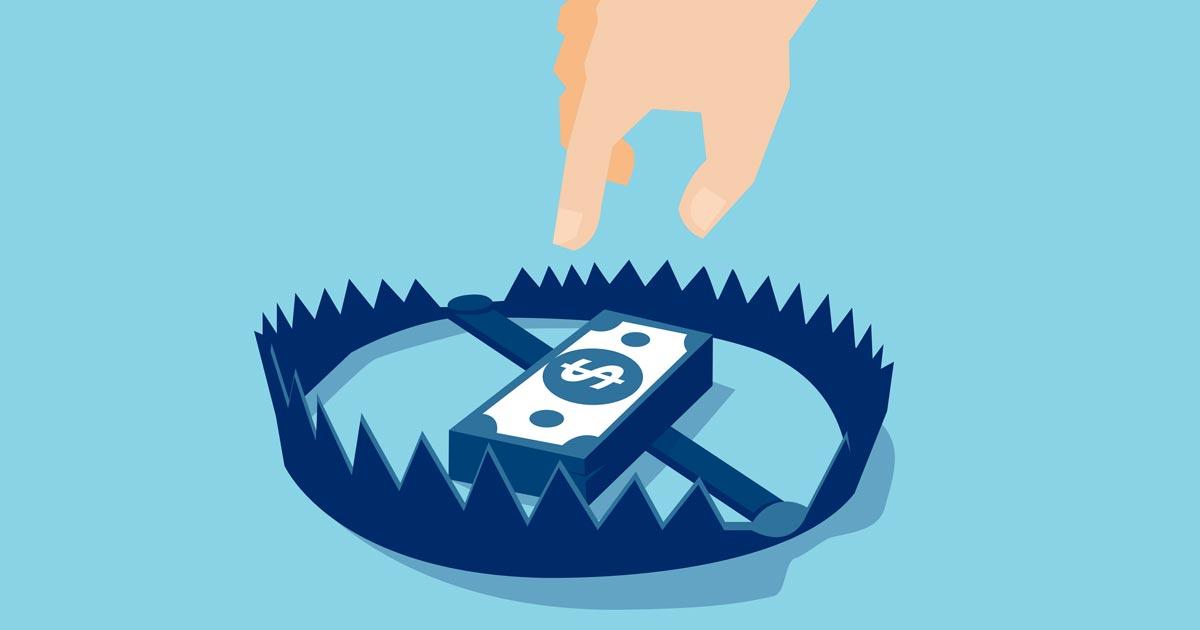 In an interview with the Wall Street Journal, Treasury secretary Janet Yellen admitted that the chain of stimulus plans implemented by the US administration helped create the problem of inflation. “Inflation is a matter of demand and supply, and the spending that was undertaken in the American Rescue Plan did feed demand,” Yellen admitted. Of course, Yellen went on to say that the spending was appropriate due to the collapse of the economy as governments were trying to prevent a recession.
In an interview with the Wall Street Journal, Treasury secretary Janet Yellen admitted that the chain of stimulus plans implemented by the US administration helped create the problem of inflation. “Inflation is a matter of demand and supply, and the spending that was undertaken in the American Rescue Plan did feed demand,” Yellen admitted. Of course, Yellen went on to say that the spending was appropriate due to the collapse of the economy as governments were trying to prevent a recession.
This reminds us of a few of the problems of disproportionate government intervention and the negative impact on the middle class. The misguided massive lockdowns were imposed by the government. Countries that had strict testing, like South Korea and other Asian and European countries, kept the economy working and the pandemic under control. However, the problem is larger and deeper. Central banks and governments have exhausted all demand-side policies at the expense of the middle class by eroding real wages and deposit savings.
Even worse, governments created a larger inflationary spiral by maintaining all “pandemic relief” packages even after the reopening, well beyond the recovery. They expected a spectacular aggregate demand increase and they got it. Now the result is higher inflation and lower economic growth. But government size and deficit spending remain.
Everything that government spends is paid by you. There is no free money. Even for the recipients of benefits in constantly depreciated currency. Inflation, the tax on the poor.
Governments do not avoid recessions through spending, they simply make the accumulated problems larger by constantly adding debt that central banks monetize via quantitative easing. This uncontrolled increase in M3 money supply (a broad money proxy) leads to asset inflation first and everyday goods price inflation afterwards. Both consequences lead to inequality and a constant deterioration of the purchasing power of the currency, making salaries in real terms lower.
Central-planned money creation is never neutral. It disproportionately benefits the first recipients of money, government and those with assets and debt, and negatively impacts those with a monetary salary and some savings in cash deposits, which dissolve over time. No socialist excel spreadsheet can erase the fact that massive deficit spending financed with newly created money destroys the poor and the middle class. They may say that government spending goes to social programs that benefit the poor, but that does not happen. Social programs in a constantly devalued currency become irrelevant, inefficient, and worthless while at the same time the wrongly named welfare state condemns a substantial proportion of the population to being hostage clients of government plans.
Government does not give excess reserves as social programs. Government takes away from existing and future wealth of the economy via currency printing, taxation, spending and debt, but math never works for those who believe extractive and confiscatory policies will work. The “tax the rich” crowd are doing an enormous disservice to the citizens they pretend to support. Interventionists may use the excuse of stealing from the rich to give to the poor, but the reality is that government spending is so enormous that they cannot finance every entitlement and social program with the money of one percent of the population. Government takes from the 99 percent to give devaluated and increasingly worthless funds to 45 percent of the population, and in the process bloating an ever-expanding bureaucracy to administer it all.
Did you feel happy when the government gave you a check paid with printed money? Watch now as your daily groceries, gas and power become unaffordable.
Government always takes three when they promise one. Huge public debt accumulation will be paid by the 99 percent via inflation, taxes, or both.
Deficit spending and artificial money creation are just two sides of the same coin, dissolving the existing wealth of a nation by issuing more promissory notes. Wealth is the same, just more units of currency in circulation. Hence, prices do not rise, the purchasing power of money diminishes.
The price of one good or service can go up due to a supply crisis, but if the quantity of currency issued is the same, it would be impossible to see all prices rising with it. In fact, other prices would fall. Prices of most goods and services can only go up in unison if the quantity of currency is rising faster than its demand.
Governments and central banks will continue to impose demand-side policies under the excuse that it is best for everyone and prevents a recession, the idea that it is good for you. The incentive to do it is immense because when it fails to work, they blame businesses, geopolitics, the rich or anyone else. If citizens believe that government can create wealth via money printing, governments will do it, presenting themselves as the solution to the problem they created. We got our pandemic cheque and now we are paying for it multiple times over.
Now Keynesians see there is only one way to curb inflation: Putting the brake on aggregate demand. But governments are not going to reduce spending, so the “aggregate demand reduction” will be making everyone in the private sector poorer.
Inflation has been created by using the lockdown to massively increase government size. Yellen says that inflation is a consequence of supply and demand, but if that were the case Argentina and Venezuela would have low inflation. The problem is rising supply of currency and weakening demand for it.
The mirage of enormous government spending and exponential currency printing is a process of expropriation. Government expands its size at the expense of the rest of the population, especially those that defend rising public expenditure programs.
Demand-side policies expropriate wealth in three ways. On the way in, by running uncontrolled deficits financed with debt, which means higher taxes in the future. Second, raising taxes to “reduce deficit.” Third, with inflation. Government weight in the economy rises in all three steps. Then, when it fails, repeat.
If you wanted more government, this is more government: Less growth, higher inflation, and poorer citizens.
Full story here Are you the author? Previous post See more for Next postTags: Featured,newsletter





















